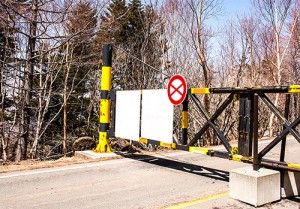 Thomas Friedman wrote a book in 2005 called The World Is Flat in which he painted a borderless world. It would be borderless in terms of trade, information exchange, resource sharing, politics, and workflow. His premise was that the Internet and associated periphery would level the playing field so that all countries could enjoy prosperity and the full employment. Nine years later, we are certainly further down that path, but there have been some setbacks and roadblocks.
Thomas Friedman wrote a book in 2005 called The World Is Flat in which he painted a borderless world. It would be borderless in terms of trade, information exchange, resource sharing, politics, and workflow. His premise was that the Internet and associated periphery would level the playing field so that all countries could enjoy prosperity and the full employment. Nine years later, we are certainly further down that path, but there have been some setbacks and roadblocks.
Rebuilding Walls
A recent article suggests that not only is the world not flat, but borders are reappearing that indicate that countries and cultures are closing their doors, as opposed to opening them. In the article, the author suggests “the burst [of the Internet] is leading to a world that is disconnected from physical and political geography.” In other words, there are two developing worlds—one physical and one virtual—and they are not necessarily in lockstep. This idea aligns with recent blogs that I have written on virtual currencies and the retrenchment of countries after the revelation of National Security Agency spying.
Borders in the Physical World
In his book, Friedman cites the 1989 fall of the Berlin Wall as evidence that borders are opening and the world is becoming flatter. He argues that this event ushered in a new era of cooperation and a homogenization of communist and capitalist ideals. It was indeed a momentous occasion and did much to introduce western thought into former communist East Germany and beyond. The eastern block countries struggled mightily as western marketers suddenly discovered untapped consumers. They struggled to build their own industry to compete in this new, flat world. This great change aside, borders are still rising and falling as evidenced by the recent integration of Ukraine back into Russia. I think we will see more countries follow as they decide which combinations will bring them the most prosperity and stability.
Borders in the Digital World
Much of Friedman’s book focuses on the Internet as the great leveler. As people have broadened access to thought leaders, they expand their thinking beyond their geopolitical borders and are influenced by a host of outside sources. If we consider this a separate world outside of physical boundaries, then the possibilities are unlimited. Virtual currency is trying to accelerate this growth of the digital world by creating a trading mechanism, uncontrolled and independent of the currency attached to a physical country. Even the digital world has borders however, generally where it intersects with the physical world. Europe, Russia, and China are all talking about creating a local Internet where citizens trade within their own borders and are protected from influences outside of their borders. Thus, the world is becoming less flat as countries and regions struggle with how to keep their citizens secure from threats that were not supposed to develop in a flat world.
Thoughts
Two things intrigue me about this idea of a flattening world. One, the idea that there may be two independent developing worlds, and two, the fact that borders fall and borders rise in both worlds. Again, independent of each other, or at best, loosely connected.
Do you think the world is getting flatter, or do you think it is getting spikier? What do you think of the notion of two separate worlds? Let me know your thoughts.
About Kelly Brown
Kelly Brown is an IT professional, adjunct faculty for the University of Oregon, and academic director of the UO Applied Information Management Master’s Degree Program. He writes about IT and business topics that keep him up at night.
